Bella Ciao
anonimo

MI SON SVEGLIATO E HO CANTATO BELLA CIAO
di Andrea Prevignano
Santoro l'ha cantata (stonatissimo) in apertura di Sciuscià per sottolineare la sua determinazione a "resistere resistere resistere" allo smantellamento della Rai; di recente il pubblico del Teatro Vascello l'ha intonata per protestare contro l'irruzione di un gruppo di neofascisti intervenuti a interrompere lo spettacolo "Mai Morti" di Bebo Storti, monologhi sulla Decima Mas; il combat folk italiano se n'è impossessato in più occasioni: la versione [al giorno d'oggi, NdR] più famosa è quella dei Modena City Ramblers.
È Bella Ciao, la canzone per eccellenza della Resistenza, il canto partigiano più popolare tra tutti quelli che hanno accompagnato le stagioni di lotta della Seconda Guerra Mondiale e dell'immediato dopoguerra, senza contare l'uso che se ne fece durante le dimostrazioni dell'autunno caldo italiano.
Ma quali sono... (continua)
16/8/2005 - 23:12
Carretera Austral
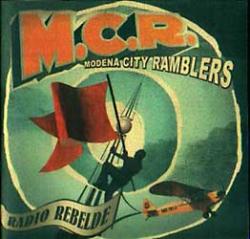
[2002]
Testo e musica dei Modena City Ramblers
Lyrics and music by Modena City Ramblers
Album: "Radio Rebelde"
La Carretera Austral è una strada di ghiaia di circa 1000 km costruita nel 1979 dal regime militare di Pinochet che parte da Puerto Monti ed arriva fino all'estremo sud patagonico del Cile; una strada completamente inutilizzabile che serviva per spostamenti militari a salvaguardia della frontiera cileno-argentina.
(da La Grande Famiglia)
Testo e musica dei Modena City Ramblers
Lyrics and music by Modena City Ramblers
Album: "Radio Rebelde"
La Carretera Austral è una strada di ghiaia di circa 1000 km costruita nel 1979 dal regime militare di Pinochet che parte da Puerto Monti ed arriva fino all'estremo sud patagonico del Cile; una strada completamente inutilizzabile che serviva per spostamenti militari a salvaguardia della frontiera cileno-argentina.
(da La Grande Famiglia)
Ramblers Dub - Una Perfecta Excusa - Carretera Austral - La legge giusta - Primo potere - Maisha - Veleno - Pirata satellitare – Ghetto - Mamagranda - Newroz - Terra del fuoco - Triste, solitario y final
La terra è lunga e sporca
(continua)
(continua)
16/8/2005 - 22:56
Natale a San Cristobal
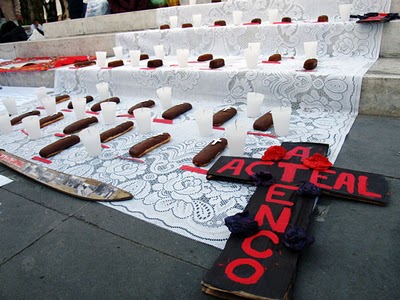
da "Fuori Campo"
Il 22 dicembre 1997, uno squadrone paramilitare ha fatto irruzione nel villaggio di Acteal, vicino a San Cristobal de las Casas, uccidendo 45 indios. La "strage di Natale", avvenuta con la connivenza dell'esercito e delle autorità messicane, ha segnato uno dei momenti più tragici della tormentata storia del Chiapas.
(da La Grande Famiglia)
"Per quanto staremo a cantare / la stessa canzone?" è un chiaro riferimento a Sunday Bloody Sunday.
LA STRAGE DI ACTEAL
di Federico Razzoli
da Peacelink
Acteal è una comunità indigena piccola ma oggi abbastanza ben messa, almeno per gli standard degli indios del Chiapas. Si trova nella zona di Oventik, ma non è una comunità zapatista, nemmeno però dalla parte del governo, i suoi abitanti sono pacifisti.
Ad Acteal oggi non vive quasi nessuno, ma qualche anno fa era una comunità di desplasados, cioè persone che sono state cacciate... (continua)
Il 22 dicembre 1997, uno squadrone paramilitare ha fatto irruzione nel villaggio di Acteal, vicino a San Cristobal de las Casas, uccidendo 45 indios. La "strage di Natale", avvenuta con la connivenza dell'esercito e delle autorità messicane, ha segnato uno dei momenti più tragici della tormentata storia del Chiapas.
(da La Grande Famiglia)
"Per quanto staremo a cantare / la stessa canzone?" è un chiaro riferimento a Sunday Bloody Sunday.
LA STRAGE DI ACTEAL
di Federico Razzoli
da Peacelink
Acteal è una comunità indigena piccola ma oggi abbastanza ben messa, almeno per gli standard degli indios del Chiapas. Si trova nella zona di Oventik, ma non è una comunità zapatista, nemmeno però dalla parte del governo, i suoi abitanti sono pacifisti.
Ad Acteal oggi non vive quasi nessuno, ma qualche anno fa era una comunità di desplasados, cioè persone che sono state cacciate... (continua)
Hanno ucciso a San Cristobal
(continua)
(continua)
16/8/2005 - 22:38
Pietà l'è morta
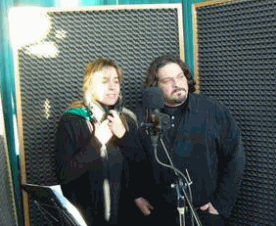
Con questo testo è stato cantata dai Modena City Ramblers con Ginevra di Marco nell'album "Appunti Partigiani" (sulla melodia della ballata irlandese "The Lakes of Ponchartrain", vedi anche wikipedia e il video. La stessa musica è utilizzata anche per la ballata americana The Lily Of The West)
PIETÀ L'È MORTA
(continua)
(continua)
16/8/2005 - 22:12
Jocu di focu a Bagdad
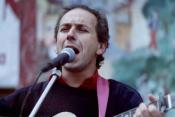
Versi e musica di Mauro Geraci
dal sito ufficiale
dal sito ufficiale
Ma come fu che gli venne a Saddam
(continua)
(continua)
16/8/2005 - 17:36
Il generale
Ballata su Pinochet, scritta dalle insegnanti della Scuola Media Statale di Roma "Antonio Gramsci", nel marzo-aprile 2000, durante un corso d'aggiornamento sperimentale tenuto da Mauro Geraci.
Tutto ebbe inizio un giorno ormai lontano
(continua)
(continua)
16/8/2005 - 17:29
La storia di Nonno Giovanni
Scritta e musicata nell'aprile 2000 dalla Ii della Scuola Media Statale Antonio Gramsci di Roma, nel corso di un laboratorio didattico tenuto da Mauro Geraci e da Gabriella Santini.
La ballata è stata costruita attraverso le informazioni, sulle condizioni di vita durante la seconda guerra mondiale, che gli alunni hanno preso loro nonni attraverso la distribuzione e la discussione in classe di un questionario.
La ballata è stata costruita attraverso le informazioni, sulle condizioni di vita durante la seconda guerra mondiale, che gli alunni hanno preso loro nonni attraverso la distribuzione e la discussione in classe di un questionario.
Ho intervistato mio nonno Giovanni,
(continua)
(continua)
16/8/2005 - 17:25
La storia di Azarias
Giovane pastorello del Mozambico ucciso dallo scoppio di una mina
Scritta e musicata nell'aprile 2000 dalla IID della Scuola Media Statale Antonio Gramsci di Roma, nel corso di un laboratorio didattico tenuto da Mauro Geraci e da Gabriella Santini
Scritta e musicata nell'aprile 2000 dalla IID della Scuola Media Statale Antonio Gramsci di Roma, nel corso di un laboratorio didattico tenuto da Mauro Geraci e da Gabriella Santini
In Mozambico era nato e cresceva
(continua)
(continua)
16/8/2005 - 17:20
Lu cantu senza cantu
Insegnanti di Capo d'Orlando
Ballata sul gravissimo attentato terroristico compiuto a New York il giorno 11 settembre 2001, scritta dalle insegnanti del "I Istituto comprensivo Giuseppe Tomasi di Lampedusa" di Capo d'Orlando (Messina), tra settembre e ottobre 2001, durante un corso d'aggiornamento sperimentale tenuto da Mauro Geraci.
Chistu è un cantu senza cantu,
(continua)
(continua)
16/8/2005 - 17:14
Percorsi:
11 settembre: terrorismo a New York
La guerra di Piero
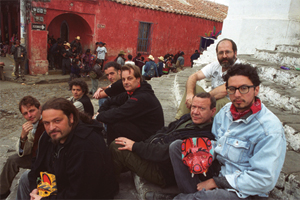
La cover cantata dai Modena City Ramblers e Piero Pelù nell'album "Appunti Partigiani" (2005)
Piero Pelù (ovviamente) fa la parte di Piero, quindi rispetto all'originale due quartine (qui evidenziate in corsivo) sono riscritte in prima persona.
Piero Pelù (ovviamente) fa la parte di Piero, quindi rispetto all'originale due quartine (qui evidenziate in corsivo) sono riscritte in prima persona.
LA GUERRA DI PIERO
(continua)
(continua)
16/8/2005 - 15:37
Il Sentiero
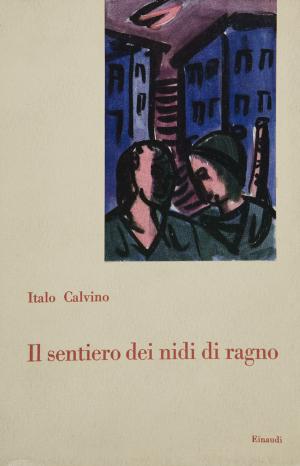
da "Appunti partigiani" (2005)
Brano inedito ispirato al primo romanzo di Italo Calvino "Il sentiero dei nidi di ragno", libro ambientato all'epoca della lotta di Liberazione partigiana e fortemente autobiografico.
Di Italo Calvino (1923-1985) la maggioranza dei lettori conoscerà la visionaria e grottesca trilogia romanzesca de I nostri antenati, ma è in un genere completamente diverso che l’autore ligure ha esordito come narratore, ovvero ne Il sentiero dei nidi di ragno, romanzo breve di chiaro impianto neorealista, ambientato tra Sanremo e le montagne dell’entroterra ligure. Nella sua opera prima Calvino ha riversato – espropriandosene, per certi versi – buona parte del proprio bagaglio personale di ricordi giovanili, quelli ‘pesanti’ almeno, accumulati nel suo periodo di militanza attiva nei ranghi della Resistenza partigiana. Il romanzo, scritto nell’immediato Dopoguerra, fu pubblicato... (continua)
Brano inedito ispirato al primo romanzo di Italo Calvino "Il sentiero dei nidi di ragno", libro ambientato all'epoca della lotta di Liberazione partigiana e fortemente autobiografico.
Di Italo Calvino (1923-1985) la maggioranza dei lettori conoscerà la visionaria e grottesca trilogia romanzesca de I nostri antenati, ma è in un genere completamente diverso che l’autore ligure ha esordito come narratore, ovvero ne Il sentiero dei nidi di ragno, romanzo breve di chiaro impianto neorealista, ambientato tra Sanremo e le montagne dell’entroterra ligure. Nella sua opera prima Calvino ha riversato – espropriandosene, per certi versi – buona parte del proprio bagaglio personale di ricordi giovanili, quelli ‘pesanti’ almeno, accumulati nel suo periodo di militanza attiva nei ranghi della Resistenza partigiana. Il romanzo, scritto nell’immediato Dopoguerra, fu pubblicato... (continua)
Lungo il sentiero dei nidi di ragno
(continua)
(continua)
16/8/2005 - 15:26
La storia del cane Fido

lorenzo de antiquis è vissuto nelle piazze italiane lasciando a tutti quelli che l' hanno conosciuto un ricordo indelebile sua figlia dedi de antiquis che abita a forlì è la presidente della associazione A.i.c.a .Associazione cantastorie Ambulanti ed è la proprietaria dell immenso patrimonio culturale lasciato in eredità a tutti noi che crediamo ancora in questi valori .Non dello stesso parere sono i cultori delle tradizioni popolari che senza arte ne parte si ergono a tutori delle nostre culture.scusa di questo sfogo ma sono veramente indignato lui che è stato ammirato da fellini secondo casadei a suonato con guccini a bologna invitato in tutta italia come uomo di cultura trattato così....dai ti saluto fabrizio
cresti fabrizio via colorno 61 parma tel 3336770309 15/8/2005 - 14:04
Passando per Milano
anonimo
Da:Canzoniere del Progno
www.canzonieredelprogno.it
www.canzonieredelprogno.it
Passando per Milano
(continua)
(continua)
inviata da adriana 15/8/2005 - 13:20
Mei ros che negher
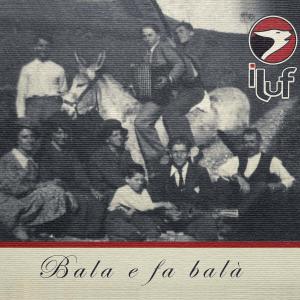
2005
Dall'album "Bala e fa balà "
a Carletto Giuliani
Dall'album "Bala e fa balà "
a Carletto Giuliani
Mei ros che negher
(continua)
(continua)
inviata da adriana 15/8/2005 - 10:55
Percorsi:
Genova - G8
Per questo non dimentico
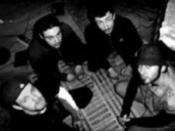
Per questo non dimentico le lacrime versate
(continua)
(continua)
inviata da adriana 15/8/2005 - 10:15
Manifesto beat
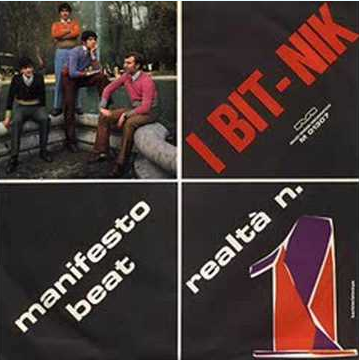
[1964]
"Una canzone-manifesto del movimento beat, che ruota attorno a due elementi ideali: la non violenza e la ripartenza, intesa come cancellazione del ricordo e della esperienza ed inizio di un mondo del tutto nuovo. Sul primo siamo d'accordo, sul secondo, come Musica & Memoria, un po' di meno.
La base musicale è curiosamente presa da un brano americano decisamente leggero dei Searchers, "Don't Throw Your Love Away", di argomento del tutto diverso e tradizionale ("Non gettare via il tuo amore") con le note festose del quale l'impegno esibito del "Manifesto" stride un poco." - Musica e Memoria
"Una canzone-manifesto del movimento beat, che ruota attorno a due elementi ideali: la non violenza e la ripartenza, intesa come cancellazione del ricordo e della esperienza ed inizio di un mondo del tutto nuovo. Sul primo siamo d'accordo, sul secondo, come Musica & Memoria, un po' di meno.
La base musicale è curiosamente presa da un brano americano decisamente leggero dei Searchers, "Don't Throw Your Love Away", di argomento del tutto diverso e tradizionale ("Non gettare via il tuo amore") con le note festose del quale l'impegno esibito del "Manifesto" stride un poco." - Musica e Memoria
Perché dovremmo imparar
(continua)
(continua)
inviata da adriana 15/8/2005 - 08:24
Eve Of Destruction
La versione italiana di Pino Masi, sulla musica dell'originale di Barry McGuire.

L'ORA DEL FUCILE
(continua)
(continua)
inviata da Riccardo Venturi 15/8/2005 - 00:32
Priština
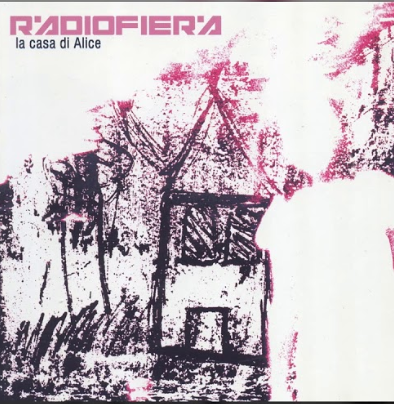
Dall'album "La casa di Alice"
Siamo nati quasi morti di freddo e di paura
(continua)
(continua)
inviata da adriana 14/8/2005 - 20:30
Percorsi:
Guerre nei Balcani negli anni '90
Uomini uomini
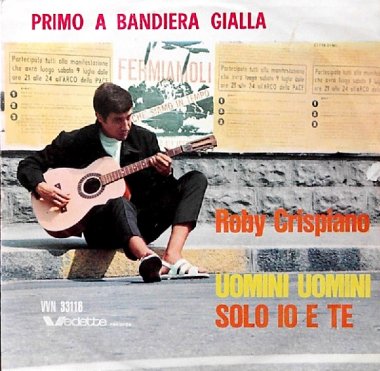
[1966]
Testo e musica di Roberto Castiglione
Un notevole brano beat nello stile di P.F.Sloan (l'autore di Eve Of Destruction, il grande successo di Barry McGuire) scritto e interpretato da uno dei più significativi cantautori beat, Roby Crispiano (Roberto Castiglione). Programmato dalle radio all'epoca (a Bandiera gialla, dove vinse diventando "canzone regina" e a Per voi giovani), ebbe anche un buon successo, aiutato anche dalla particolare voce roca di Roby e dalla sua convinta interpretazione. Crispiano - Castiglione, che ebbe altri buoni successi come ade esempio Brennero '66, presentata al Festival delle Rose in coppia con la prima formazione dei Pooh (e con annessi guai da parte della censura RAI), abbandonò presto la carriera musicale per non scendere ai compromessi richiesti dall'ambiente e dai discografici dopo la fine dell'epoca d'oro del beat, abbracciando una carriera di venditore... (continua)
Testo e musica di Roberto Castiglione
Un notevole brano beat nello stile di P.F.Sloan (l'autore di Eve Of Destruction, il grande successo di Barry McGuire) scritto e interpretato da uno dei più significativi cantautori beat, Roby Crispiano (Roberto Castiglione). Programmato dalle radio all'epoca (a Bandiera gialla, dove vinse diventando "canzone regina" e a Per voi giovani), ebbe anche un buon successo, aiutato anche dalla particolare voce roca di Roby e dalla sua convinta interpretazione. Crispiano - Castiglione, che ebbe altri buoni successi come ade esempio Brennero '66, presentata al Festival delle Rose in coppia con la prima formazione dei Pooh (e con annessi guai da parte della censura RAI), abbandonò presto la carriera musicale per non scendere ai compromessi richiesti dall'ambiente e dai discografici dopo la fine dell'epoca d'oro del beat, abbracciando una carriera di venditore... (continua)
In me vedete
(continua)
(continua)
inviata da adriana 14/8/2005 - 18:25
The Last Stop

[1998]
Da/From "Before These Crowded Streets"
This song is about inhumanity, particularly in the context of war. The song contradicts the belief that war is necessary to eventually reach peace, as displayed in the lyrics "War, the only way to peace, well I don't fall for that." The song also talks about the way people kill others without even thinking about it, almost in a robotic fashion: "How is this hate so deep, lead us all so blindly killing killing, fools we are." The song also discusses the US government's lies concerning war and their idea of supremacy in the world: "Right is wrong now, shut up you big lie." The last topic discussed is the pain caused by war, especially towards the families of those killed: "Mother's cry is hate so deep, must a baby's bones this hungry fire feed." (thanks, Liz - Ridgewood, NJ)
*
This song is obviously about Jerusalem, "the last stop" on a migragtion... (continua)
Da/From "Before These Crowded Streets"
This song is about inhumanity, particularly in the context of war. The song contradicts the belief that war is necessary to eventually reach peace, as displayed in the lyrics "War, the only way to peace, well I don't fall for that." The song also talks about the way people kill others without even thinking about it, almost in a robotic fashion: "How is this hate so deep, lead us all so blindly killing killing, fools we are." The song also discusses the US government's lies concerning war and their idea of supremacy in the world: "Right is wrong now, shut up you big lie." The last topic discussed is the pain caused by war, especially towards the families of those killed: "Mother's cry is hate so deep, must a baby's bones this hungry fire feed." (thanks, Liz - Ridgewood, NJ)
*
This song is obviously about Jerusalem, "the last stop" on a migragtion... (continua)
yahweh yahweh, the hebrew word for god
(continua)
(continua)
inviata da Riccardo Venturi 14/8/2005 - 17:46
Question
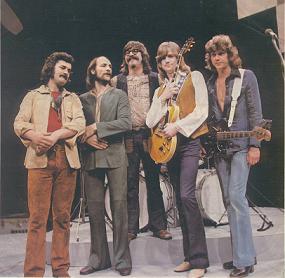
[1970]
Da / From "Question Of Balance"
Band member Justin Hayward wrote this. It reflected the thoughts of many young people who were questioning the war in Vietnam.
This was the opening track on their Question Of Balance album. It was recorded several months earlier than the other tracks on the album and its title was shortened from "Question Of Balance" to "Question"
in the liner notes of the 1997 remastered CD, Hayward wrote: "Sometime before we taped the album, we (documented) 'Question,' which was a song that I didn't have on Friday night for a session (the next day). But, by the morning, I had it and it was recorded very quickly." Hayward adds that it was "Recorded live, with no overdubbing or double-tracking, just a bit of echo."
In The UK this became their second biggest hit, after their 1964 #1 hit "Go Now."
Fish, who is the ex-lead singer of the UK rock group Marillion,... (continua)
Da / From "Question Of Balance"
Band member Justin Hayward wrote this. It reflected the thoughts of many young people who were questioning the war in Vietnam.
This was the opening track on their Question Of Balance album. It was recorded several months earlier than the other tracks on the album and its title was shortened from "Question Of Balance" to "Question"
in the liner notes of the 1997 remastered CD, Hayward wrote: "Sometime before we taped the album, we (documented) 'Question,' which was a song that I didn't have on Friday night for a session (the next day). But, by the morning, I had it and it was recorded very quickly." Hayward adds that it was "Recorded live, with no overdubbing or double-tracking, just a bit of echo."
In The UK this became their second biggest hit, after their 1964 #1 hit "Go Now."
Fish, who is the ex-lead singer of the UK rock group Marillion,... (continua)
Why do we never get an answer
(continua)
(continua)
inviata da Riccardo Venturi 14/8/2005 - 17:28
Landlocked Blues
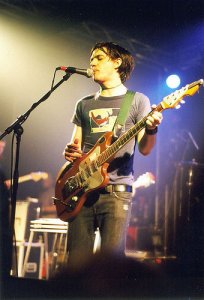
[2005]
From / Da "I'm Wide Awake, It's Morning"
This song is about the Iraq war, which the band feels is completely unnecessary. Conor Oberst sings, "There are kids playing guns in the street/and one's pointing his tree branch at me, so I threw my hands up, I said enough is enough, if you walk away, I'll walk away, then he shot me dead." This song suggests that even the youth are marred with violence. (thanks, Robin - Huntertown, IN)
*
I agree. I think it's about many different things, not only the Irag War. It says a lot about running away from different situations, I think. One of my favorite verses in this is, "We made love on the living room floor With the noise in background of a televised war And in the deafening pleasure I thought I heard someone say 'If we walk away, they 32ll walk away'" I think that verse just speaks so much about how you can never be free of war and pain and... (continua)
From / Da "I'm Wide Awake, It's Morning"
This song is about the Iraq war, which the band feels is completely unnecessary. Conor Oberst sings, "There are kids playing guns in the street/and one's pointing his tree branch at me, so I threw my hands up, I said enough is enough, if you walk away, I'll walk away, then he shot me dead." This song suggests that even the youth are marred with violence. (thanks, Robin - Huntertown, IN)
*
I agree. I think it's about many different things, not only the Irag War. It says a lot about running away from different situations, I think. One of my favorite verses in this is, "We made love on the living room floor With the noise in background of a televised war And in the deafening pleasure I thought I heard someone say 'If we walk away, they 32ll walk away'" I think that verse just speaks so much about how you can never be free of war and pain and... (continua)
If you walk away, I’ll walk away
(continua)
(continua)
inviata da Riccardo Venturi 14/8/2005 - 17:10
I've Seen All Good People
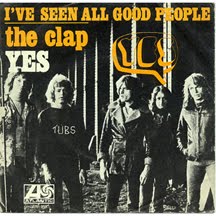
[1971]
Da / From "The Yes Album"
This is an anti-war song: The term "I've seen all good people" is ALL the people, including the so-called enemy.
The line, "Don't surround yourself with yourself" refers to self-righteous behavior; "Move on back two squares" is a chess term meaning to retreat and rethink your position. The lyrics also refer to the queen, which is the most versatile and powerful chess piece. It talks about how news is captured for use by the queen, which uses forces to take control and manipulate troops against the enemy. War is like a game of chess.
This song references "Instant Karma" which was a song recorded by John Lennon a year earlier.
The lines: "Just remember that the gold is for us to capture all we want, anywhere, Yea, yea, yea" refers to the rich and powerful victimizing the weak and poor. The US was taken off the Gold standard by Richard Nixon August 15, 1971... (continua)
Da / From "The Yes Album"
This is an anti-war song: The term "I've seen all good people" is ALL the people, including the so-called enemy.
The line, "Don't surround yourself with yourself" refers to self-righteous behavior; "Move on back two squares" is a chess term meaning to retreat and rethink your position. The lyrics also refer to the queen, which is the most versatile and powerful chess piece. It talks about how news is captured for use by the queen, which uses forces to take control and manipulate troops against the enemy. War is like a game of chess.
This song references "Instant Karma" which was a song recorded by John Lennon a year earlier.
The lines: "Just remember that the gold is for us to capture all we want, anywhere, Yea, yea, yea" refers to the rich and powerful victimizing the weak and poor. The US was taken off the Gold standard by Richard Nixon August 15, 1971... (continua)
I. Your Move
(continua)
(continua)
inviata da Riccardo Venturi 14/8/2005 - 16:52
If You Tolerate This Your Children Will Be Next
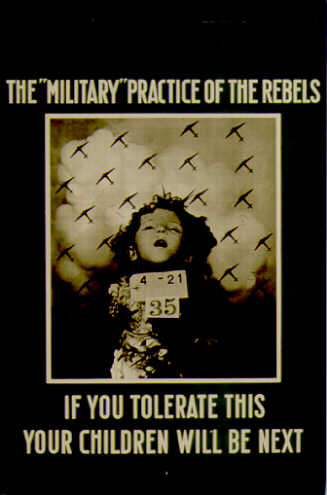
[1998]
Da / From " This Is My Truth, Tell Me Yours"
Commento di Giacomo:
The future teaches you to be alone
The present to be afraid and cold
La frase-monito per l'attuale generazione, che non puo' combattere una guerra.
'So if I can shoot rabbits
Then I can shoot fascists'
Molti sostengono che questa sia la frase pronunciata da un allevatore che ando' a combattere la guerra...
Bullets for your brain today
But we'll forget it all again
La guerra civile spagnola fu "presto" dimenticata dall'inizio della seconda guerra mondiale
Monuments put from pen to paper
Turns me into a gutless wonder
Gli eroi nazionali che compaiono sui giornali fanno sentire i giovani (di oggi) dei "codardi" (gutless)
And if you tolerate this
Then your children will be next
And if you tolerate this
Then your children will be next
Will... (continua)
Da / From " This Is My Truth, Tell Me Yours"
Commento di Giacomo:
The future teaches you to be alone
The present to be afraid and cold
La frase-monito per l'attuale generazione, che non puo' combattere una guerra.
'So if I can shoot rabbits
Then I can shoot fascists'
Molti sostengono che questa sia la frase pronunciata da un allevatore che ando' a combattere la guerra...
Bullets for your brain today
But we'll forget it all again
La guerra civile spagnola fu "presto" dimenticata dall'inizio della seconda guerra mondiale
Monuments put from pen to paper
Turns me into a gutless wonder
Gli eroi nazionali che compaiono sui giornali fanno sentire i giovani (di oggi) dei "codardi" (gutless)
And if you tolerate this
Then your children will be next
And if you tolerate this
Then your children will be next
Will... (continua)
The future teaches you to be alone
(continua)
(continua)
inviata da Riccardo Venturi 14/8/2005 - 16:47
Ballata
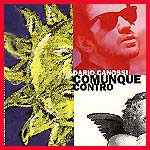
Dal'album: Comunque contro
ballerò sopra i tuoi occhi
(continua)
(continua)
inviata da adriana 14/8/2005 - 16:09
Hold Out Your Hand
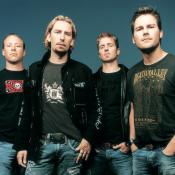
[2000]
Da/From "The State"
This is about Concentration Camps/Death Camps during World War II. The "Human Mile" refers to the Jews who will never come back. (thanks, Jay - Reading, England)
(From "Songfacts")
Da/From "The State"
This is about Concentration Camps/Death Camps during World War II. The "Human Mile" refers to the Jews who will never come back. (thanks, Jay - Reading, England)
(From "Songfacts")
All men with stars upon the chest
(continua)
(continua)
inviata da Riccardo Venturi 14/8/2005 - 15:46
Percorsi:
Campi di sterminio
The Trooper
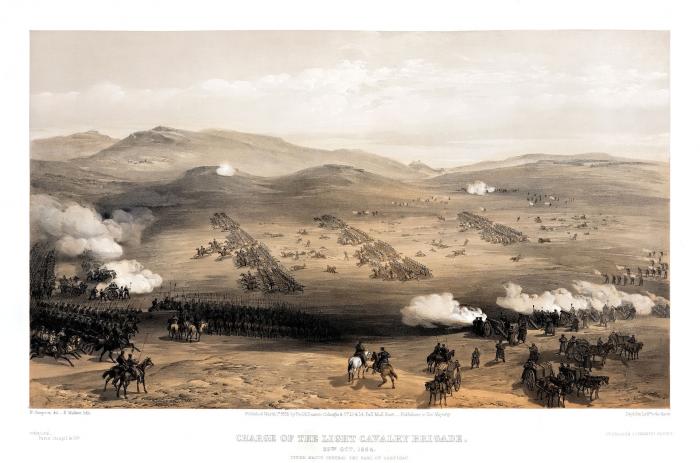
[1983]
Da / From "Piece Of Mind"
This song is based on the Crimean War, which was fought by the Russians and the Ottoman Empire (England, France, and Sardinia). There are several mentions of the Russians such as, "The mighty roar of the Russian guns" and "When a Russian gets me in his sights." (thanks, Michael Olsen - West Hills, CA)
*
As it mentions in the songfacts section this track is indeed about the Crimean War Between Russia and Britain.
- Steven, Penzance, England
(From "Songfacts")
Da / From "Piece Of Mind"
This song is based on the Crimean War, which was fought by the Russians and the Ottoman Empire (England, France, and Sardinia). There are several mentions of the Russians such as, "The mighty roar of the Russian guns" and "When a Russian gets me in his sights." (thanks, Michael Olsen - West Hills, CA)
*
As it mentions in the songfacts section this track is indeed about the Crimean War Between Russia and Britain.
- Steven, Penzance, England
(From "Songfacts")
You’ll take my life but I’ll take yours too
(continua)
(continua)
inviata da Riccardo Venturi 14/8/2005 - 15:30
Tailgunner
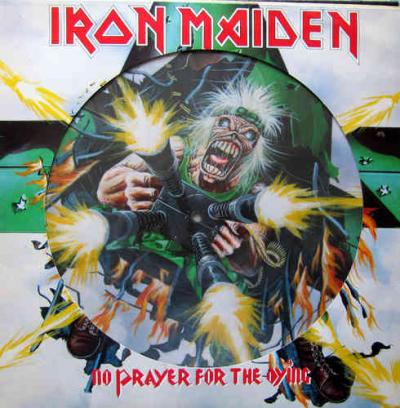
[1990]
Da / From "No Prayer For The Dying"
A sequel to Maiden's 1984 song Aces High It depicts the battle from another perspective. It was co-written by Bruce Dickinson and Steve Harris.
Contains the harshest profanity Iron Maiden has ever used in their song lyrics- the F-word.
Bruce Dickinson: "The title came from a porno movie about anal sex. Then I thought, well I can't write the lyrics about that, so I write it about real tailgunners. I had some words which began 'Trace your way back fifty years, to the glow of Dresden, blood and tears.' I know we shouldn't mention the war but it's about the attitude of bombing people. It was real death in the skies back then. But there aren't any tailgunners on planes anymore, it's all done by computers using missiles. At least it used to be man-on-man, but now it's machine-on-machine. Who uses bullets anymore?"
The first track off the album, it... (continua)
Da / From "No Prayer For The Dying"
A sequel to Maiden's 1984 song Aces High It depicts the battle from another perspective. It was co-written by Bruce Dickinson and Steve Harris.
Contains the harshest profanity Iron Maiden has ever used in their song lyrics- the F-word.
Bruce Dickinson: "The title came from a porno movie about anal sex. Then I thought, well I can't write the lyrics about that, so I write it about real tailgunners. I had some words which began 'Trace your way back fifty years, to the glow of Dresden, blood and tears.' I know we shouldn't mention the war but it's about the attitude of bombing people. It was real death in the skies back then. But there aren't any tailgunners on planes anymore, it's all done by computers using missiles. At least it used to be man-on-man, but now it's machine-on-machine. Who uses bullets anymore?"
The first track off the album, it... (continua)
Trace your way back
(continua)
(continua)
inviata da Riccardo Venturi 14/8/2005 - 15:27
The General
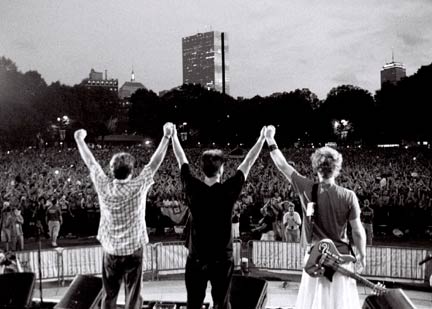
[2000]
Da / From "Bang Bang"
This song tells a story about a brilliant and battle-torn young general who has a dream in which he realizes the futility of war. He then attempts to persuade his men that they do not have to participate in the battle, but that he would fulfill the job he had sworn to do. He wants them to leave and live a full life, but none of his men will leave him. (thanks, Jim - Pittsburgh, PA)
*
When I first heard this song, it was at a service project program call Sierra Service Project, where a counselor sang it for us while accompanying himself on guitar. It seemed then, and it still seems now, that this song is religious in nature. The whole song to me seems like an extended metaphor for Jesus, or some other "savior"-type person. for the sake of simplicity, let's just say its Jesus. It seems to me that you could make the connection between Jesus and the General... (continua)
Da / From "Bang Bang"
This song tells a story about a brilliant and battle-torn young general who has a dream in which he realizes the futility of war. He then attempts to persuade his men that they do not have to participate in the battle, but that he would fulfill the job he had sworn to do. He wants them to leave and live a full life, but none of his men will leave him. (thanks, Jim - Pittsburgh, PA)
*
When I first heard this song, it was at a service project program call Sierra Service Project, where a counselor sang it for us while accompanying himself on guitar. It seemed then, and it still seems now, that this song is religious in nature. The whole song to me seems like an extended metaphor for Jesus, or some other "savior"-type person. for the sake of simplicity, let's just say its Jesus. It seems to me that you could make the connection between Jesus and the General... (continua)
There was a decorated General with a heart of gold
(continua)
(continua)
inviata da Riccardo Venturi 14/8/2005 - 15:22
I Was Only Nineteen (A Walk In The Light Green)
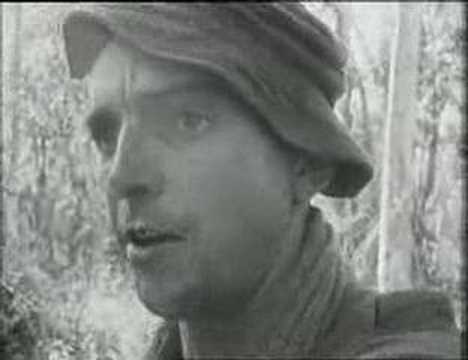
[1980]
Da / From "Real Aussies"
This is about the Vietnam War. The "Light Green" refers to the area on a map of Vietnam. Dark green was an area where there had been no defoliants ("Agent Orange," for instance) and where there was plenty of cover. Light green meant it had been cleared, but there were likely minefields and probably Vietnamese around (because it had been cleared).
The areas named in the first part of the song: Puckapunyal, Townsville, Shoal Water, Nui Dat and Vung Tau are all real places. Puckapunyal was a training center for army recruits. Townsville is a town in Queensland; Shoal Water was used for military training exercises, and Nui Dat and Vung Tau were Australian bases in Vietnam. The "SLR" is the Self Loading Rifle, the standard armament of Australian Infantry in Vietnam. "Greens" in the lyrics are simply camo uniforms. "Chinooks" are helicopters, or "Choppers,"... (continua)
Da / From "Real Aussies"
This is about the Vietnam War. The "Light Green" refers to the area on a map of Vietnam. Dark green was an area where there had been no defoliants ("Agent Orange," for instance) and where there was plenty of cover. Light green meant it had been cleared, but there were likely minefields and probably Vietnamese around (because it had been cleared).
The areas named in the first part of the song: Puckapunyal, Townsville, Shoal Water, Nui Dat and Vung Tau are all real places. Puckapunyal was a training center for army recruits. Townsville is a town in Queensland; Shoal Water was used for military training exercises, and Nui Dat and Vung Tau were Australian bases in Vietnam. The "SLR" is the Self Loading Rifle, the standard armament of Australian Infantry in Vietnam. "Greens" in the lyrics are simply camo uniforms. "Chinooks" are helicopters, or "Choppers,"... (continua)
Mum and Dad and Danny saw the passing out parade at Puckapunyal
(continua)
(continua)
inviata da Riccardo Venturi 14/8/2005 - 15:15
Blackened
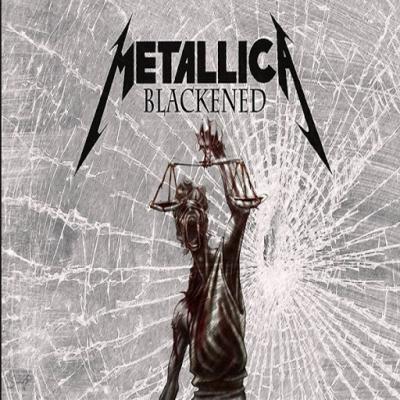
[1988]
Da / from "...And Justice for All"
This is about the end of the world in Nuclear War. It also deals with pollution, deforestation and other social problems. (thanks, Ryan - Ireland)
This song is based on assorted social/political matters. Including different reasons for death. Disease, Famine, Hunger, War, Addictions, etc. And actually, Hetfield came from a very religious family.
- Jess, Milford, PA
no it's not about the end of world war 1. it's about the way the end of the world is written in the bible.
- Aaron, Des Moines, IA
no it's not about the end of in nuclear war. it's about the way the end of the world is written in the bible.
- Aaron, Des Moines, IA
ok that first guy doesnt no what hes talkin about i doubt Metallica ever read the bible let alone right a song about it(besides creeping death) buts it is the end of the world and the first song of the best alumb ever
-... (continua)
Da / from "...And Justice for All"
This is about the end of the world in Nuclear War. It also deals with pollution, deforestation and other social problems. (thanks, Ryan - Ireland)
This song is based on assorted social/political matters. Including different reasons for death. Disease, Famine, Hunger, War, Addictions, etc. And actually, Hetfield came from a very religious family.
- Jess, Milford, PA
no it's not about the end of world war 1. it's about the way the end of the world is written in the bible.
- Aaron, Des Moines, IA
no it's not about the end of in nuclear war. it's about the way the end of the world is written in the bible.
- Aaron, Des Moines, IA
ok that first guy doesnt no what hes talkin about i doubt Metallica ever read the bible let alone right a song about it(besides creeping death) buts it is the end of the world and the first song of the best alumb ever
-... (continua)
Blackened Is the End
(continua)
(continua)
inviata da Riccardo Venturi 14/8/2005 - 14:43
Aces High
[1984]
From / da "Powerslave"
[The song] describes an air battle from the viewpoint of a flying ace. The lyrics and fast-paced style have made the song commonly associated with war, and it appeared in the 1986 film Incident at Channel Q, about a war between headbangers and conservative "straight people".
The first line is "There goes the siren that warns of the air raid." Lead singer Bruce Dickinson had earned the nickname "The Air Raid Siren" for his powerful, never-tiring vocals. He is also a licensed pilot, and since leaving the band in 1993, has flown many commercial flights.
Partially inspired by the 1976 war film of the same name starring Malcolm McDowell and Christopher Plummer.
The cover for the single was a close-up of Eddie (Iron Maiden's mascot) in a WWII jet. The back of the case showed the jet spiraling the ground, up in flames, smoke spewing from it. The B-side was "King... (continua)
From / da "Powerslave"
[The song] describes an air battle from the viewpoint of a flying ace. The lyrics and fast-paced style have made the song commonly associated with war, and it appeared in the 1986 film Incident at Channel Q, about a war between headbangers and conservative "straight people".
The first line is "There goes the siren that warns of the air raid." Lead singer Bruce Dickinson had earned the nickname "The Air Raid Siren" for his powerful, never-tiring vocals. He is also a licensed pilot, and since leaving the band in 1993, has flown many commercial flights.
Partially inspired by the 1976 war film of the same name starring Malcolm McDowell and Christopher Plummer.
The cover for the single was a close-up of Eddie (Iron Maiden's mascot) in a WWII jet. The back of the case showed the jet spiraling the ground, up in flames, smoke spewing from it. The B-side was "King... (continua)
There goes the siren that warns of the air raid
(continua)
(continua)
inviata da Riccardo Venturi 14/8/2005 - 14:17
Per tutti quei sorrisi
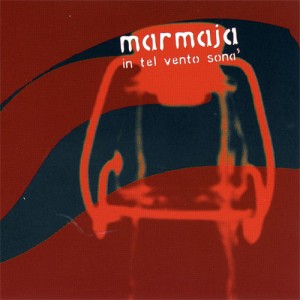
1999
In tel vento sonà
La canzone parla della strage del 2 agosto 1980 alla stazione di Bologna e mi è stata segnalata direttamente da Guido Frezzato dei Marmaja, che ringrazio di cuore.
Vorrei dedicarla a Elia, il chitarrista dei Marmaja, scomparso il 18 giugno 2004.
Con nessun'altra parola, ma soltanto musica.
(Riccardo Venturi)
In tel vento sonà
La canzone parla della strage del 2 agosto 1980 alla stazione di Bologna e mi è stata segnalata direttamente da Guido Frezzato dei Marmaja, che ringrazio di cuore.
Vorrei dedicarla a Elia, il chitarrista dei Marmaja, scomparso il 18 giugno 2004.
Con nessun'altra parola, ma soltanto musica.
(Riccardo Venturi)
Uno partì di notte
(continua)
(continua)
inviata da Riccardo Venturi 14/8/2005 - 00:26
Percorsi:
Piazza Fontana e altre Stragi di Stato, Treni
Guantanamera

Da Musiche dal Mondo (Fabbri Editori): Guajira Guantanamera
Vieja Trova Santiaguera (versione Joseíto Fernández)
Lo spirito rivive nel classico "Guajira Guantanamera" dei "Vieja Trova Santiaguera", un quintetto di anziani musicisti (eta media: settant'anni) proveniente da Santiago de Cuba e custode del repertorio basato su son, rumba e bolero.
La melodia di Guantanamera fu diffusa a Cuba nel 1932 da José Fernández Díaz, da tutti conosciuto come "Joseíto", il quale conduceva un notiziario alquanto originale dal titolo “El Suceso del Día” (Il fatto del giorno) alla radio CMQ de La Habana.
Si veda questa pagina
Lo spirito rivive nel classico "Guajira Guantanamera" dei "Vieja Trova Santiaguera", un quintetto di anziani musicisti (eta media: settant'anni) proveniente da Santiago de Cuba e custode del repertorio basato su son, rumba e bolero.
La melodia di Guantanamera fu diffusa a Cuba nel 1932 da José Fernández Díaz, da tutti conosciuto come "Joseíto", il quale conduceva un notiziario alquanto originale dal titolo “El Suceso del Día” (Il fatto del giorno) alla radio CMQ de La Habana.
Si veda questa pagina
Guantanamera
(continua)
(continua)
inviata da Emilio Tacchini 14/8/2005 - 00:01
L'Internationale

GRECO / GREEK
Trascrizione fonemica di Riccardo Venturi.
A phonemical transcription by Riccardo Venturi
12 agosto 2005 / August 12, 2005
Trascrizione fonemica di Riccardo Venturi.
A phonemical transcription by Riccardo Venturi
12 agosto 2005 / August 12, 2005
Questa e le seguenti trascrizioni e versioni sono date soltanto per le prime due strofe e il ritornello, vale a dire le parti effettivamente e generalmente cantate dell'Internazionale greca.
All the transcriptions and versions, including this one, are given only for the first two verses and the refrain, i.e. the parts of the Greek Internationale which are really and generally sung. [CCG/AWS Staff]
All the transcriptions and versions, including this one, are given only for the first two verses and the refrain, i.e. the parts of the Greek Internationale which are really and generally sung. [CCG/AWS Staff]
[iδjeθ’ηi:s]
(continua)
(continua)
13/8/2005 - 00:51
Lied der Seeräuber-Jenny

LA FIANCEE DU PIRATE
(continua)
(continua)
inviata da Riccardo Venturi 12/8/2005 - 23:25
Joao Menezes

Joao Menezes è l'elettricista brasiliano ucciso a freddo da quattro uomini in borghese di Scotland Yard dopo gli attentati di Londra del 7 luglio 2005
Joao Menezes da chi scappavi
(continua)
(continua)
inviata da adriana 12/8/2005 - 16:59
×
![]()

![Le roi Renaud [La mort du roi Renaud; Quand Renaud de guerre revint]](img/upl/roirenaud.gif)
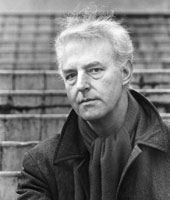
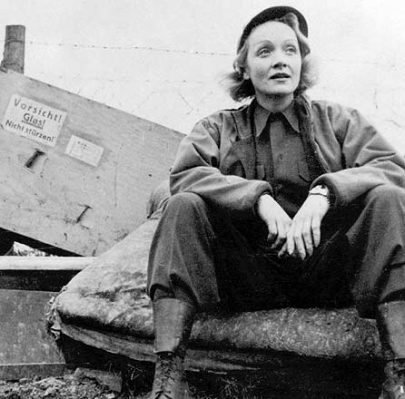

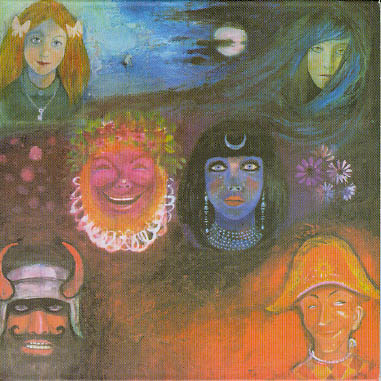
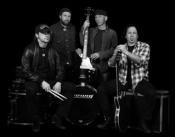

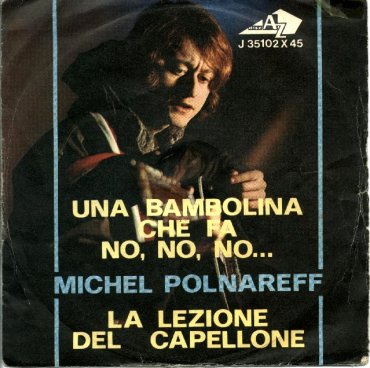



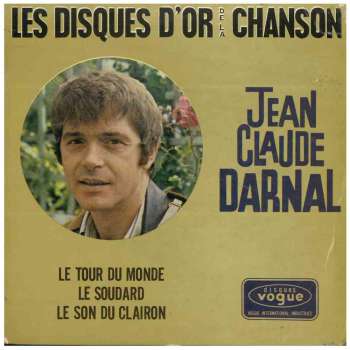

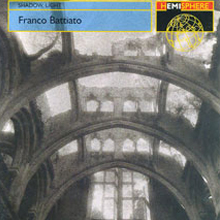

PAGINA IN RISTRUTTURAZIONE E AMPLIAMENTO
THIS PAGE IS UNDER RESHAPING AND ENLARGEMENT
PAGE EN COURS DE RESTRUCTURATION ET ACCROISSEMENT
Si tratta probabilmente della più celebre tra le antiche ballate francesi; forse un po’ esageratamente, ma sicuramente con un paragone efficace, Georges Doncieux scriveva nel 1900 che, tra i canti popolari, la canzone del re Renaud è, per la sua indubbia bellezza e per la sua notorietà, ciò che la Chanson de Roland è per l’epica e che la Farce de Maître Pathelin è per l’antico teatro comico. Purtroppo o per fortuna, nessuno potrà mai impedire agli studiosi francesi, anche i più seri, di lasciarsi andare a simili considerazioni intrise di grandeur; fatto sta che la Chanson du Roi Renaud resta comunque un antico testo popolare più che notevole, testimoniato in decine di versioni (circa una sessantina già quando scriveva Doncieux) ed ancora oggi conosciuto... (continua)